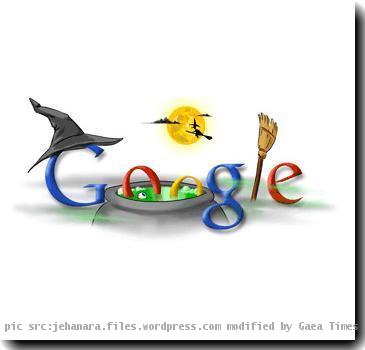Google, Yahoo criticize Australia’s mandatory Internet filter plan as heavy-handed
By Tanalee Smith, APWednesday, March 24, 2010
Google, Yahoo criticize Australian Internet filter
ADELAIDE, Australia — Internet giants Google and Yahoo have criticized Australia’s proposal for a mandatory Internet filter, calling it a heavy-handed measure that could restrict access to legal information.
Their statements, among 174 comments from the public submitted to the Department of Communications on the filtering proposal, come amid a struggle between Google and China over censorship-free content.
Lucinda Barlow of Google Australia on Wednesday called the Internet blocking measures of Australia and China “apples and oranges” but said her company was deeply concerned about Australia’s proposal because of its mandatory and sweeping nature.
Australian Communications Minister Stephen Conroy says the filter would block access to sites that include child pornography, sexual violence and detailed instructions in crime or drug use. The list of banned sites could be constantly updated based on public complaints.
If adopted into law, the screening system would make Australia one of the strictest Internet regulators among the world’s democracies, and the proposal has put the country on the Reporters Without Borders annual “Enemies of the Internet” list.
“Our primary concern is that the scope of content to be filtered is too wide,” Google wrote in its submission, also suggesting the filter would slow browsing speeds.
The company said it already had its own filter to block child pornography.
“Some limits, like child pornography, are obvious. No Australian wants that to be available — and we agree,” Google said. “But moving to a mandatory ISP level filtering regime with a scope that goes well beyond such material is heavy-handed and can raise genuine questions about restrictions on access to information.”
Google’s Barlow told the Australian Broadcasting Corp. that the proposal raised the possibility of banning politically and socially controversial material and went beyond filters used in Germany and Canada, which block child pornography and, in Italy, gambling sites.
Yahoo made a similar contention, saying the filter would block many sites with controversial content — such as euthanasia discussion forums and gay and lesbian forums that discuss sexual experiences.
“There is enormous value in this content being available to encourage debate and inform opinion,” Yahoo said.
The filter would not block peer-to-peer file-sharing nor prevent predators approaching children in chat programs or social networking sites, and both Google and Yahoo backed a national campaign to educate parents and children about safe use of the Internet.
Comments on the proposal came from Australian telecommunication companies, lobby groups and individuals. Conroy said his department would take the comments into consideration before sending a proposal to Parliament later this year.
The discussion over Internet restrictions in Australia comes as Google is battling online censorship in China.
Google said last month it would stop censoring searches for the Chinese government, and this week began routing searches through Hong Kong. In response, the communist government has blocked people on the mainland from seeing search results or Web sites dealing with such forbidden topics as the pro-democracy movement.
David Vaile of the Cyberspace Law and Policy Center at the University of New South Wales said China and Australia had markedly different approaches to restricting the Internet.
“China’s filter is explicitly about discouraging access to and discussion of certain clearly political topics,” he said, while Australia’s filter would focus on specifically restricted material.
While some critics of Australia’s filter have said it puts the nation in the same censorship league as China, Vaile pointed out that the freedom-of-speech argument used by American companies follows a legal tradition that other countries do not necessarily share.
Yahoo and Google are accustomed to the protections of the First Amendment of the U.S. Constitution, which guarantees freedom of speech and elevates it to a very high legal status, Vaile said.
“In Australia there is no equivalent,” Vaile said. “There is no law that says you’ve got free speech. Having a lack of any legal protection for free speech for any effective restraint on (filters) is something that’s worrying.”
Tags: Adelaide, Asia, Australia, Australia And Oceania, China, Computing And Information Technology, East Asia, Greater China, Internet Technology, Sex In Society

